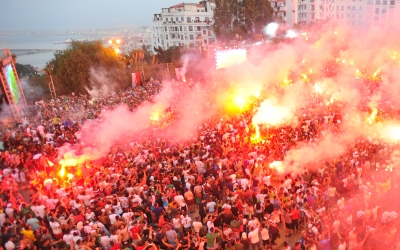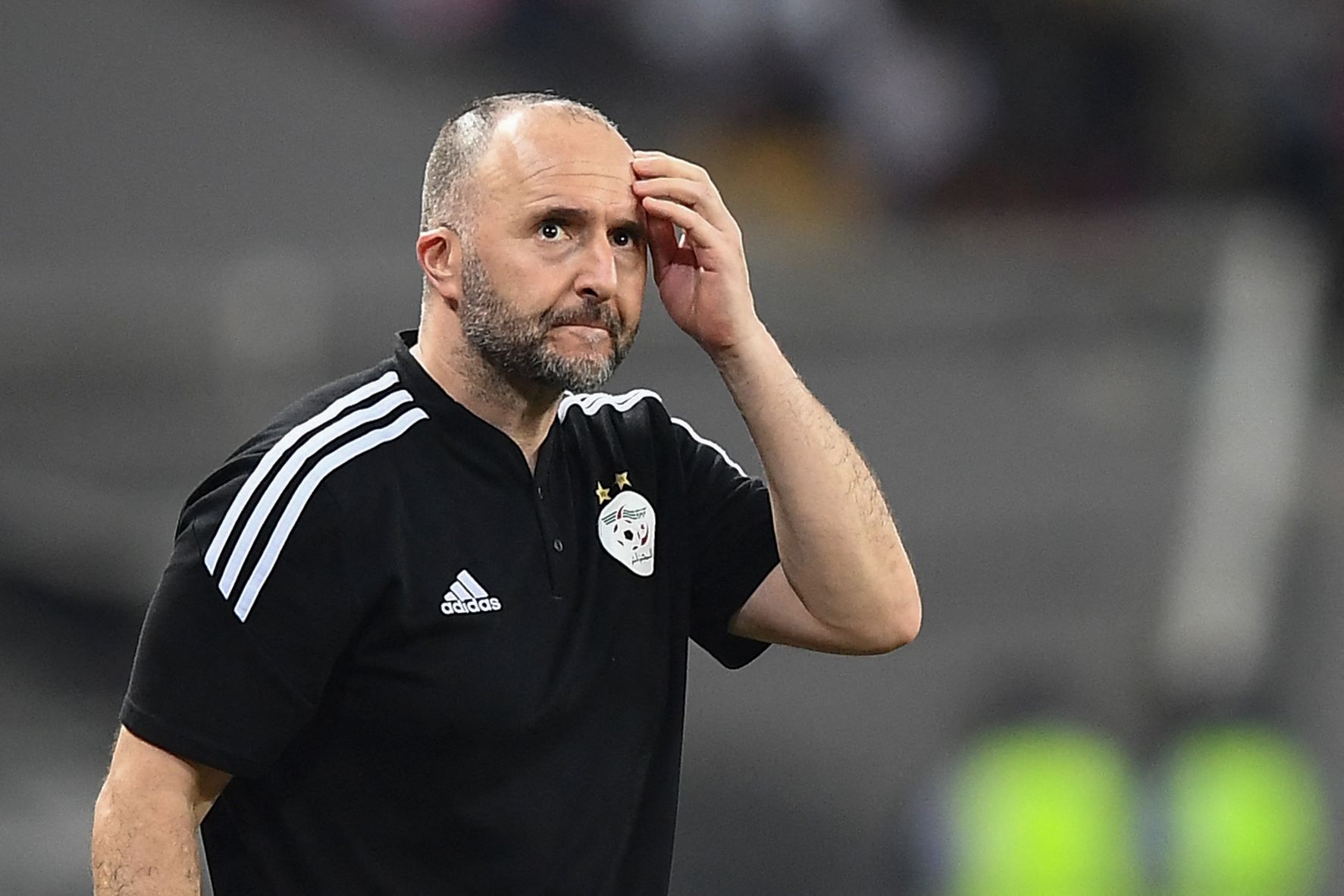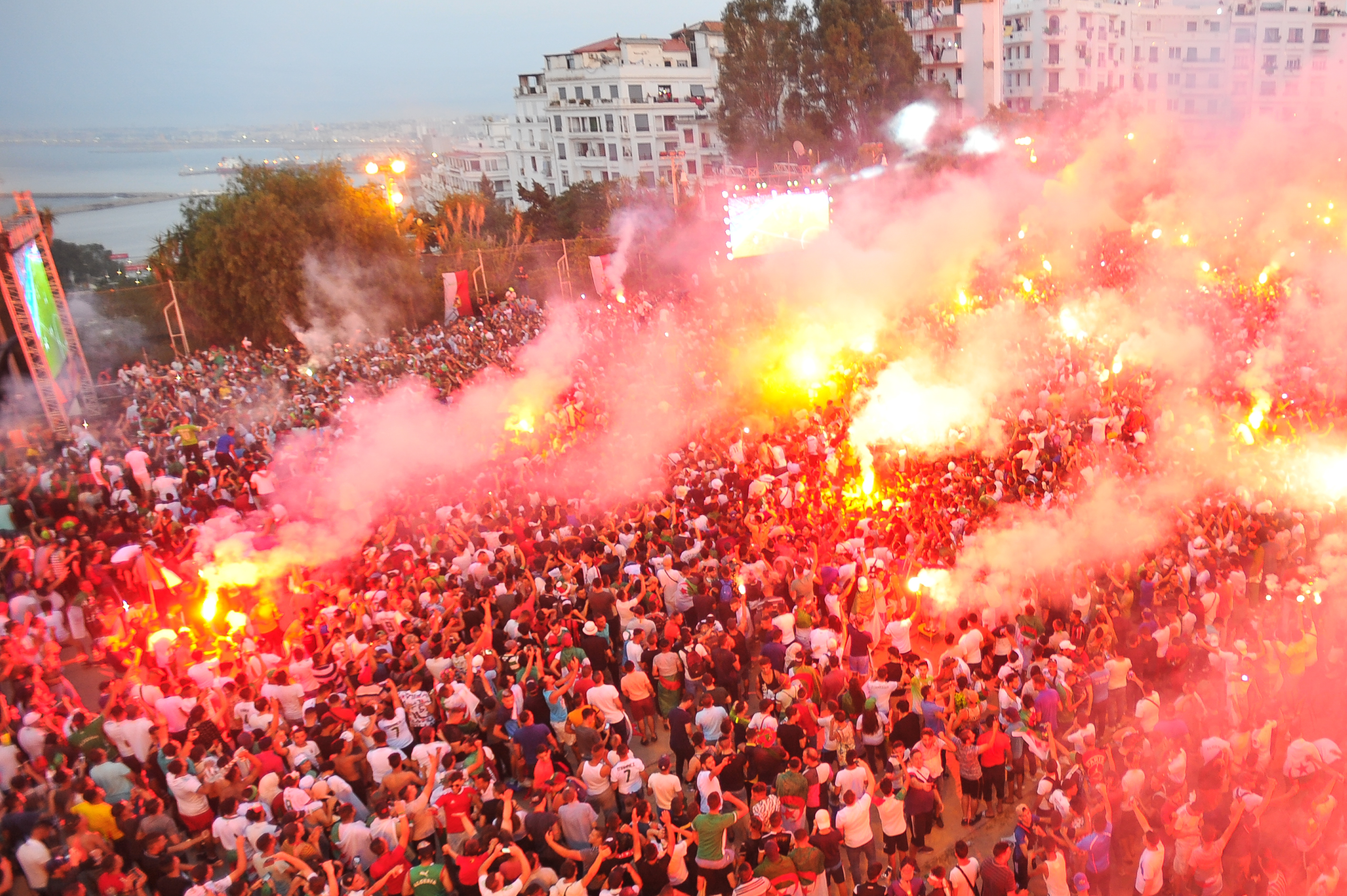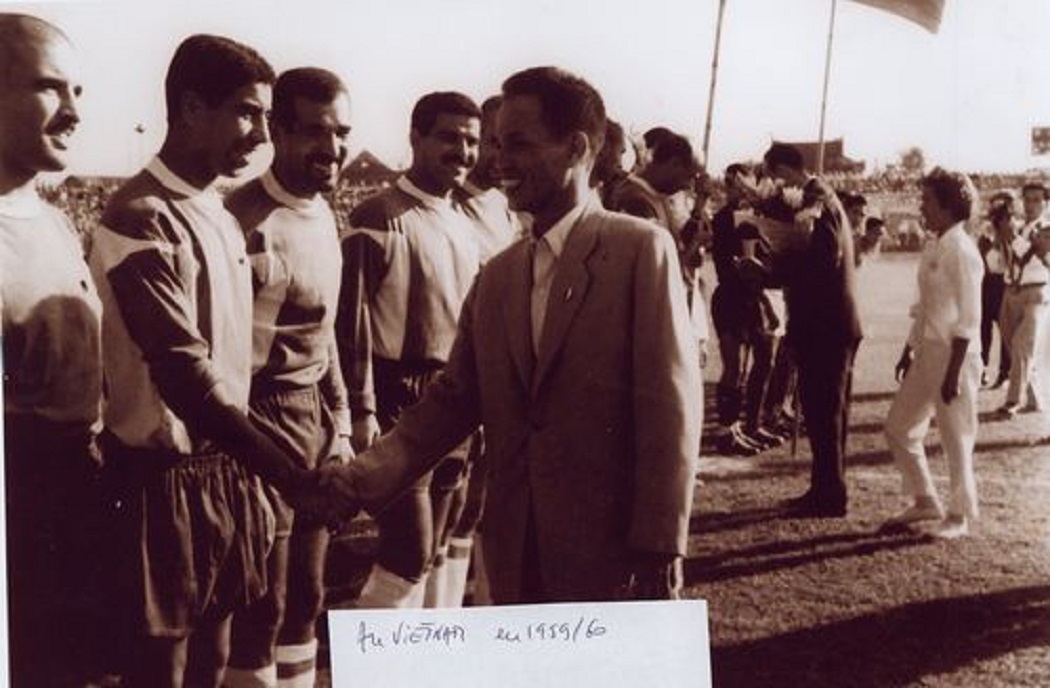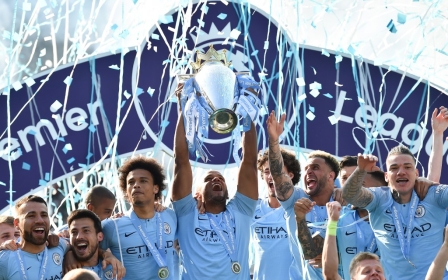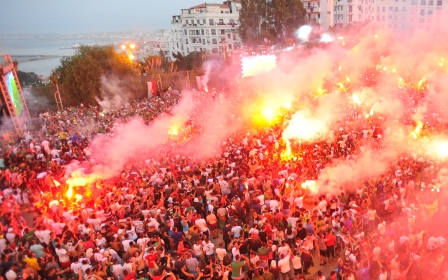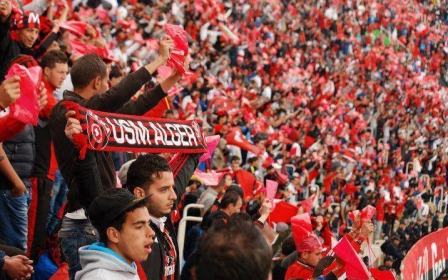Afcon: Algeria's unbeaten run has ended but the pillars of success remain
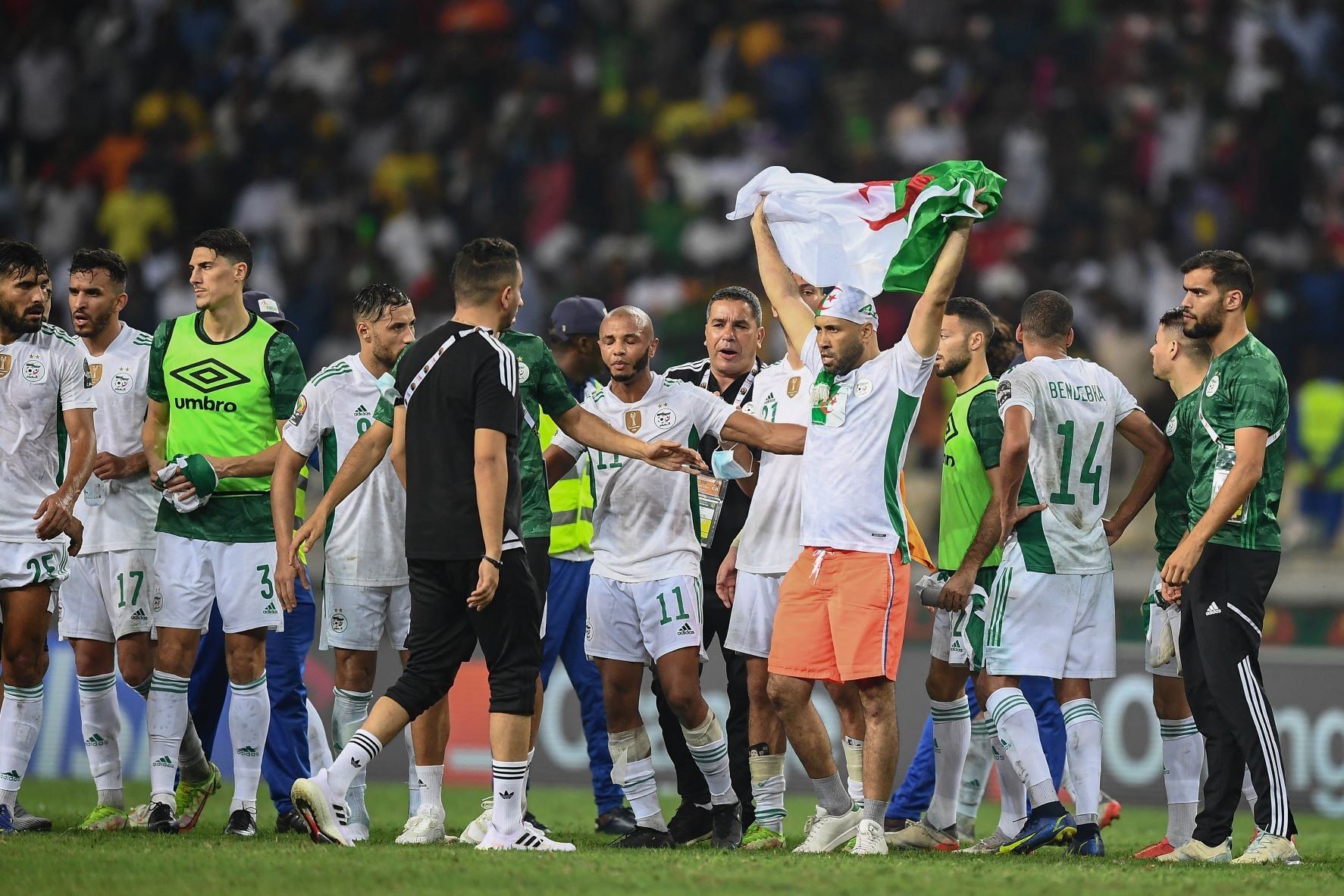
When the Algerian national football team lifted Fifa’s inaugural Arab Cup in December, it felt like a safe bet that the desert foxes (or Fennecs) would successfully defend their Africa Cup of Nations (Afcon) title in the following months.
As the tournament began in Cameroon, the team had gone 35 games without defeat and Italy’s (ongoing) 37-game unbeaten run, the international record, was within touching distance.
New MEE newsletter: Jerusalem Dispatch
Sign up to get the latest insights and analysis on Israel-Palestine, alongside Turkey Unpacked and other MEE newsletters
What happened instead was a spectacular first round exit, finishing bottom of a group that featured Sierra Leone and Equatorial Guinea, ranked 108 and 114 respectively in Fifa’s rankings (at the time of writing). It was the latter that dealt the death blow to the Fennecs’ unbeaten run, with a shock one-nil win at the Douala Stadium.
With only a point and a goal to their name, the team seemed a shadow of the sides that dominated the Arab Cup a month earlier and the 2019 version of Afcon.
Not one to soften the blow, Ivory Coast coach Patrice Beaumelle, whose side defeated Algeria three goals to one in the final group match, summarised his opponents' performance over the course of the tournament: “They never really had confidence in themselves.”
Algerian coach Djamel Belmadi’s side of homegrown and Europe-based stars will have to rediscover that confidence soon, as qualifiers for the Qatar World Cup resume in March.
That said, football punditry is defined by its love of crisis. One bad showing in a tournament and a few defeats, especially after an incredible run of form, have a habit of exuding a sense of permanence.
While obituaries have been published on the end of the unbeaten run, writing off the team and their manager entirely is hasty.
Only when the results of the past month are viewed within the context of the past four years, can Belmadi’s philosophy and the efforts of his players be truly appreciated.
A new man in charge
The word “fixing” was an understatement when it came to diagnosing the situation in Algerian football before Belmadi’s arrival in 2018.
The former president of the Algerian Football Federation, Kheireddine Zetchi, said the country’s football scene was "sick" after the team’s failure to qualify for the 2018 World Cup in Russia.
On the local level, the beautiful game was riddled with corruption. Match-fixing scandals had become routine in football-mad Algeria. A reflection of the situation on the ground, the national team went through six managers in five years. A change was needed.
Algerian sports journalist Maher Mezahi, who covered the team during Afcon, said the national side's recent history can be split between before and after Belmadi’s arrival.
“Before Belmadi came it was complete chaos [with] players not feeling like the federation was putting them in the right place or in the right state of mind to win matches,” he told Middle East Eye.
'Before Belmadi came it was complete chaos'
- Maher Mezahi, sports journalist
By the time the reins of the national team were passed on to the former Olympique Marseille player and Algeria international, the Fennecs had crashed out of Afcon at the group stage in 2017, in addition to their World Cup failure.
The task at hand for Belmadi seemed insurmountable and pessimists could have been forgiven for thinking he would join the conveyor belt of managers who had tried and failed to restore order.
As a player, Belmadi earned a reputation as a tactically astute attacking midfielder, cutting his teeth at Paris Saint-Germain during the 90s, before spells at Marseille and English outfits Manchester City and Southampton.
After retiring as a player, Belmadi reinvented himself as a manager in Qatar, coaching the league side now known as Al-Duhail and briefly, the Qatari national side in 2014 and 2015.
Leaving the Gulf state in 2018 with four league titles, his next challenge was in his homeland.
Bridging the divide
During his four years in charge, Belmadi has implemented a discipline based approach, in which he has demonstrated both his capacity for empathy and ruthlessness.
Born in France and of Algerian origin, the Fennecs’ coach is also uniquely placed to understand the identity politics that sometimes inhibit cohesion within Algerian squads.
“The Algerian national team since its initiation in 1958 has always been a bridge between Algerians in Algeria and in the diaspora,” said Mahfoud Amara, an associate professor in sport management and social sciences at Qatar University.
“The national team symbolises unity and brings together players from different regions of Algeria and from different ethnicities; Arab and Berber.”
Yet Amara includes the caveat that foreign-born players are often made scapegoats by fans during bad performances due to their perceived split loyalty.
Belmadi himself chose to play for Algeria instead of putting himself in contention for the French squad, at a time when few other Franco-Algerian players did. That personal experience puts him in a good position to bring together both his diaspora and homegrown players.
“Let’s take the case of Riyad Mahrez, born in Paris, French-Algerian, captain of the national team and a very talented player who played in England,” said Mezahi.
“Belmadi went through the exact same thing… they (players) know what he’s been through (and he knows) what they're going through.”
Put succintly, as long as they hold an Algerian nationality certificate and do not see the country as a second option, Belmadi is not going to make a distinction between his players.
In his footballing philosophy, little space remains for those whose priorities do not reflect the best interests of the Algerian national team.
This was demonstrated recently when Belmadi dropped Nice striker Andy Delort for prioritising his club over the Afcon 2021 campaign.
Indifferent to star status elsewhere, Belmadi has also relied on his own personal experience of a player's ability rather than their reputation among others.
For example, West Ham’s breakout talent Said Benrahma plays understudy to Youcef Belaili, who had never played in a European football league until his move to French side Brest earlier this year.
Belmadi’s approach has been vindicated with Belaili’s award winning performances on the pitch, including a 40-yard wonder goal against Morocco in the Arab Cup quarter final.
With possible sources of discontent within the squad dealt with, Belmadi has been able to focus his attention on fine tuning his tactical approach.
His first major test as the manager of the Desert Foxes was AFCON 2019, which happened amid political upheaval and revolution in Algeria, as hundreds of thousands poured out onto the streets to demand an end to corruption and the removal of then-president Abdelaziz Bouteflika and his acolytes.
With uncertainty at home, the Fennecs won every single group game comfortably without conceding a goal.
A team consisting of the likes of Belaili, Baghdad Bounedjah, Napoli’s Adam Ounas, former Leicester star Islam Slimani, and former Arsenal academy player Ismael Bennacer, proved too much for the continent’s finest.
The side wrote their name on the Afcon trophy with a one-nil win over Senegal in the final, a team coincidentally headed by Aliou Cisse, who grew up just a few miles from Belmadi in the Paris suburb of Champigny-sur-Marne.
Why football matters
Algeria is no stranger to the nexus between football, business and politics, and at various points largely unsuccessful attempts have been made by the ruling elite to use sport to distract the country’s young from economic and political issues.
Club presidents and owners, such as media tycoon Ali Haddad, who once owned league side USM Alger, were often part of Bouteflika’s inner circle, a position that would have left them with very little in common with their clubs’ ordinary supporters.
During elections, photos of Bouteflika would also adorn stadiums during matches, with fans largely indifferent to their presence.
The loyalty of Algerian football fans towards their clubs stems primarily from the neighbourhoods in which they live rather than the political affiliations of the clubs’ owners.
On the contrary, the stands of the country’s football stadiums are a place where fans are able to express their collective desires and frustrations.
Chants against the country’s corrupt elite have long been common, even before Algeria’s popular people’s movement ignited in 2019. Young football fans were an instrumental component of that movement for change in Algeria.
The place of this sort of political expression within sports can be traced back to Algeria’s anti-colonial struggle, where sport was used as a way to internationalise Algeria’s quest for independence from France.
“Modern sport, which is the legacy of colonialism in Algeria, was used in the late 19th century and the beginning of the 20th century to segregate between the European settler community and the indigenous population,” Amara explains.
Club des Joyeusetes d’Oran was the first Algerian football club established by Pieds-Noirs (European settlers) in the northwestern port city of Oran in 1894.
It wasn’t long before other football clubs came into existence across Algeria, becoming spaces where nationalist movements could rally support.
As part of the Algerian struggle for independence, football was a tool used to counter French colonial cultural hegemony. This was best exemplified in the nationalist movement’s own football team.
'Modern sport... was used in the late 19th century and the beginning of the 20th century to segregate between the European settler community and the indigenous population'
- Mahfoud Amara, Qatar University
“The National Liberation Front (FLN) ordered in 1958 that all Algerian players playing professionally mainly in the French league cease their professional career and travel to Tunis to form the Algerian national team in exile,” Amara said.
Algerian players scattered across France were recruited, including Mustapha Zitouni and Rachid Mekhloufi, who were poised to start for France’s national side at the 1958 World Cup. The demand was simple: give up your professional careers and join the national rebellion.
Over the course of the next four years, the outlawed squad would play over 100 matches against international teams, forcing host nations to play the Algerian national anthem and raise their flag, which in turn was a form of acknowledgement of Algeria as an independent entity.
Through the team, the FLN, Algeria's principal nationalist liberation movement, succeeded in creating an effective diplomatic weapon that served as a model for other revolutionary forces around the world.
The existence of the team sent the message that whether France granted independence or not, the Algerian people would declare their freedom irrespective.
Less than a year after independence in January 1963, the Algeria Football Federation was officially established and the rest is history.
With three World Cup appearances and hope for a fourth soon, a lot rides on the success of the national team. Alongside Belmadi’s determination for success is an entire nation for whom football and national identity are conjoined.
While there might be setbacks, for Algerian fans, there is no looking back to the days immediately before Belmadi’s arrival.
“It would have been a very positive thing for an Algerian, especially an African side to hold the [unbeaten streak record],” Mezahi said. “It was a mark of respect on the continent and abroad.
“Now they have to try to do it again.”
This article is available in French on Middle East Eye French edition.
Middle East Eye delivers independent and unrivalled coverage and analysis of the Middle East, North Africa and beyond. To learn more about republishing this content and the associated fees, please fill out this form. More about MEE can be found here.


